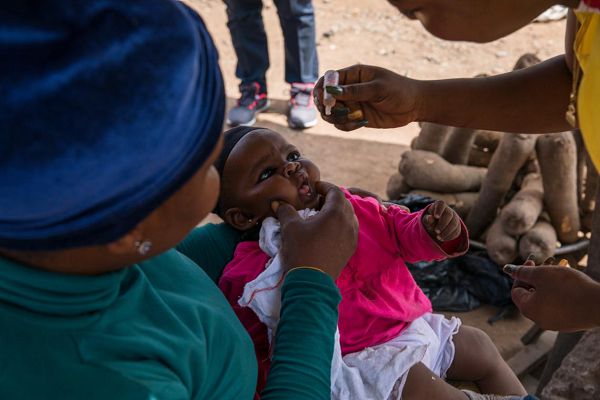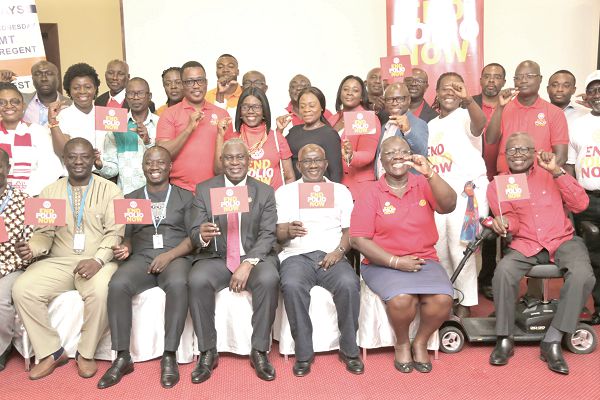
Polio Day marked
The Noguchi Memorial Institute for Medical Research (NMIMR) has called for the scaling-up of efforts to strengthen surveillance of polio, as the country continues to detect more cases.
The Head of the Polio Laboratory at the institute, Dr John Odoom, who made the call at a breakfast meeting in commemoration of World Polio Day in Accra yesterday, said the polio virus still existed in the country, with some cases having been detected in the Greater Accra and the Northern regions since July 2019.
He said there were only 10 environmental surveillance sites in four regions in the country which were being used to monitor the prevalence of the disease. The regions are Greater Accra, Eastern, Volta and Northern.
The breakfast meeting formed part of activities by the Rotary Club of Accra to commemorate World Polio Day, which is celebrated globally on October 24, every year.
The event is used to create awareness towards the eradication of polio, as well as support efforts by employees of the World Health Organisation (WHO) and other partners committed to the eradication of polio.
Surveillance
“We need to extend environmental surveillance to all the 16 regions and also ensure that we have as many sites as possible to monitor the disease,” Dr Odoom said.
He said in the Greater Accra Region, for instance, polio cases had been detected at Dansoman Last stop, Agbogbloshie and Nima.
He added that some cases had been detected in the Northern and the Volta regions, saying the disease was circulating in the country but that due to inadequate surveillance, the institute was unable to sufficiently monitor the situation in other regions.
“When the virus is found in the environment, it means that people have the virus and they are shedding it in the environment through stools. That is dangerous to children who are vulnerable to the disease,” he said.
He said even though people had the disease, they did not show any signs of it until it reached the paralysis stage.
Dr Odoom, therefore, called for adequate funding to strengthen the polio surveillance system, including vaccinations.

Dignitaries and guests at the Breakfast Meeting. Picture: EMMANUEL ASAMOAH ADDAI
Efforts
The WHO Representative in Ghana, Dr Owen Laws Kaluwa, in a speech read on his behalf, said a non-wild polio virus was in circulation in the country, with cases recorded in children.
While commending the government and its partners for their response to the recent outbreak, he said more needed to be done to increase population immunity and strengthen surveillance.
He also called for shared responsibility to ensure that the polio virus was eradicated from the world.
No complacency
The Special Advisor to the President on the Sustainable Development Goals (SDGs), Dr Eugene Owusu, said: “We should not rest, and cannot declare victory, until every child everywhere is safe from the polio virus.”
“We should never forget that until we reach the goal of polio zero, the risk of reversal is all too real. Until the last virus is defeated, the world will continue to be at risk,” he added.
Dr Owusu commended the Rotary Club for its pivotal role in national development, particularly in the areas of health, education, water and sanitation and conflict resolution, as it strived to create a better, safer and more peaceful world.
The President of the Rotary Club, Mr Kofi Adu-Mensah, said the club made the commitment to immunise children against polio in 1985 as part of a Global Polio Eradication initiative.
The club, he added, had since contributed almost $1.9 billion and countless volunteers in the fight against polio in the world.
